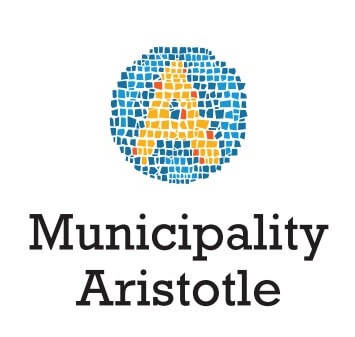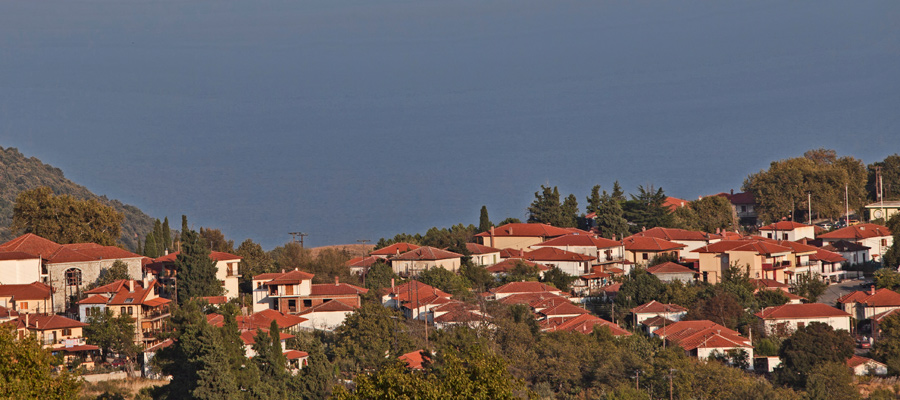The village of Stagira is built at the foot of Mount Stratonikos (Strebenikos), at an altitude of approximately 500 meters. The village, located on the main Thessaloniki-Ouranoupolis road, has about 500 inhabitants and is just 8 km away from the sea. Its old name was Kazantzi Mahalas, and it belonged to the commune of Mademochoria. The inhabitants worked in the neighboring mines during the Byzantine era, and this continued during the Ottoman period.
Stagira is the birthplace of Athanasios Stagirites (1780 – 1840), the Teacher of the Nation and a great adversary of Adamantius Korais, as well as Dimitrios Stagirites, a fighter in the Greek War of Independence of 1821 and the representative of Macedonia in the 3rd National Assembly in Epidaurus and the 4th in Argos. The 1821 revolutionary fighter, Eleftherios Michail, was from the now abandoned nearby settlement of Chorouda. It is worth noting that the great Greek philosopher Aristotle was born in Ancient Stagira, about 8 km to the northwest, with the modern settlement considered its historical continuation.
Upon entering the village, you will notice the Aristotle Grove and to the left, the hill of Agios Dimitrios with the complex of Siderokafsia, which was built during the early Ottoman period. Siderokafsia was the headquarters of the mine and an important administrative center of the region, with its own mint. There are also other interesting monuments, such as towers, public baths, and the mansion of Madem Aga, from the time of the Siderokafsia.
Upon entering Stagira, the Church of the Nativity of the Theotokos will catch your attention, a significant archaeological site built in 1814 with the help of the Chilandari Monastery on Mount Athos. It is one of the few churches in Greece built in a cross-shaped design. It is worth visiting inside, so ask the priest to open it for you.
Info
Ask about Panagouda, the old church at the top of the village, built in 1903 inside a rock, also known as the Cave Church. The village’s big festival takes place here on September 8th. Next to it stands one of the towers from the time of Siderokafsia, and in the nearby neighborhood, many houses are built on older foundations from the 15th and 16th centuries.
THE ARTICLE



